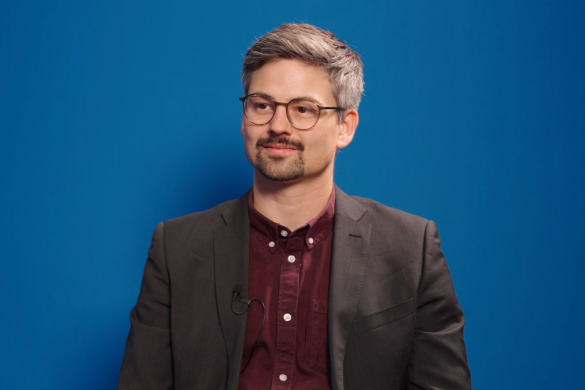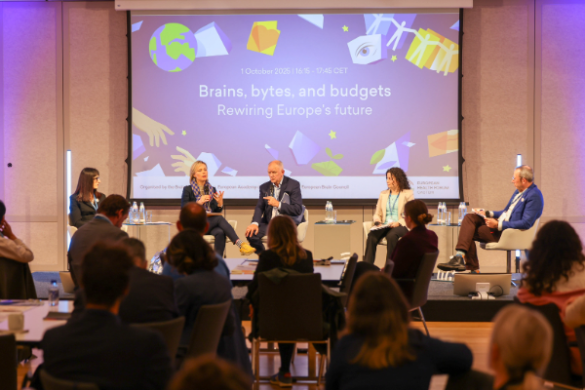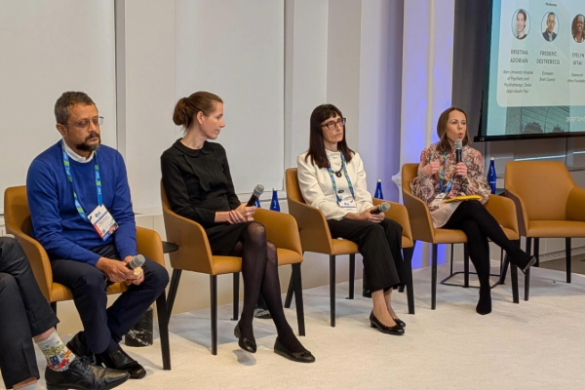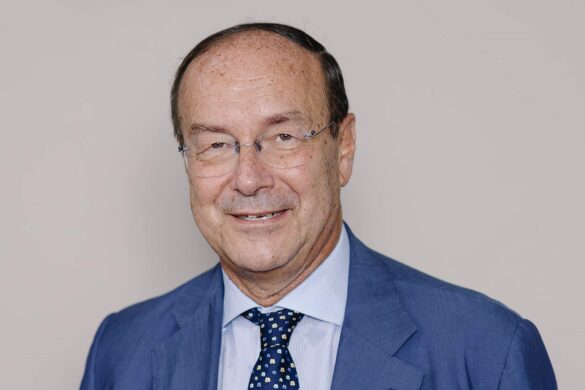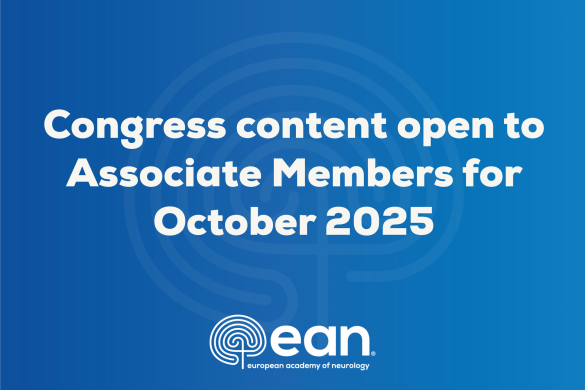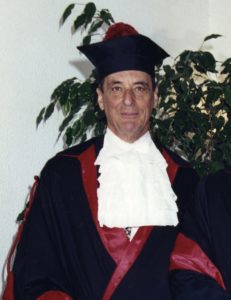
Prof. Cesare Fieschi passed away last June in Rome (Italy) at the age of 84.
He was born in Pavia, from a family of old Genovese ancestry. He did his medical internship and neurology residency at the University of Genoa. In 1969 he moved to Rome to follow his mentor, Prof. Cornelio Fazio. Very shortly thereafter he did his research fellowship in the “Laboratory of Cerebral Metabolism” of the NIH-NINDS in Bethesda (USA), where studied the regional energy metabolism of the brain using the autoradiography approach, under the direction of Prof. Lou Sokoloff and Prof. Seymour Kety. These experimental studies contributed to the later demonstration of a therapeutic window for the treatment of cerebral ischemia in humans. This was probably his major scientific achievement that opened the field to thrombolytic therapy in acute stroke. After his return to Italy he served as Professor of Neurology, first in Siena (1970-1977), and then in Rome, where he created the first Italian Stroke Unit at the University La Sapienza.
Prof. Fieschi was one of the founders of the Society of Cerebral Blood Flow and Metabolism, and was its President from 1981 to 1982. He was also one of the founders of the European Federation of Neurological Societies. In his professional career he served as the President of the Italian Society of Neurology. He received the Gold Medal of the President of the Italian Republic in 2003, for meritorious Public Health service in cerebrovascular diseases and in multiple sclerosis. In 2009 he was awarded the Lifetime Achievement Award by the International Society of Cerebral Blood Flow and Metabolism for his tremendous contribution to the field and for his untiring work on behalf of the Society. He retired from the University in 2002, but continued to be active within his group at the Sant’Andrea Hospital in Rome, up until a few months before his death. His wife, Carla, Associated Professor of Neurology, survives him.
* * *
To the many people who knew Cesare Fieschi, I would imagine that they would recall the main aspects of his personality: his continuous activity, his determination, his inner force that inspired his work, and the quality of drive that he demonstrated towards his many pupils.
Cesare Fieschi was definitely a hard-worker, with a no-nonsense, pragmatic attitude towards both clinical activities and experimental research. “Where are the data?” he used to ask us. Very definitely he hated burocracy. He loved music, he loved to walk, he loved to travel (“C B F … see the world,“ he used to say, playing with the sounds of these letters). He was, however, much too impatient to play bridge or to play tennis and/or golf. He supported the Italian soccer team INTER, but without the strong passion of a real soccer fan. I may guess that he attended no more that four or five matches of this team. He loved sailing, both on the lake of Bracciano and in the sea near Talamone. He was not a gourmet, nor was he an expert on wine, and this lack was the cause of many friendly discussions with Lou Sokoloff, who loved travel through Europe mixing scientific events with the “Michelin Guide” stars. He was not a diplomat, he refused compromises, and to be obliged to spend days in discussions and planning with “big pharmacy companies” was something that annoyed him deeply. He respected science, and I remember him talking with deep and keen emotion about Kety, Lassen, Ingvar, Ross Russel, and Plum. A couple of times I asked him to write a book, a monograph on stroke, but he always answered that he had too many other things to do rather than to be sitting for months at a desk writing a book.
The photo of him that I have selected was taken in 2000 (SEO), when – at Cesare’s request – the University of Roma gave the “HONORIS CAUSA” to Lou Sokoloff.
* * *
Please allow me to add a few personal lines from the many memories I have of Cesare, who I first met in 1951, when I was an 8-year-old boy and he was finishing his high school studies in Siena. I had accompanied my mother to visit his mother at their home in the Piazza del Capitano in Siena, and I still clearly remember this towering, very active young man, continuously moving around his living room. This top-down relationship has gone on… with some ups and downs for all the 35 years of Academic collaboration we enjoyed together; from the moment that Cesare rescued me from complete and dramatic unemployment on the 15th of January 1973, to his retirement in 2002, and even to recent years. I have been his First-Assistant for 15 years, and then his junior Colleague. It has been for me a deeply gratifying experience to be able to rely on him for important decisions, for discussing clinical dilemmas, and for on-going academic support. Our different personalities caused, from time to time, some turbulence in our relationship, but I have never ceased to consider Cesare Fieschi “ il mio amato Maestro”, my much loved Master.
Gian Luigi Lenzi, Professor of Neurology
Emeritus Professor of Neurology
University of Rome Sapienza




